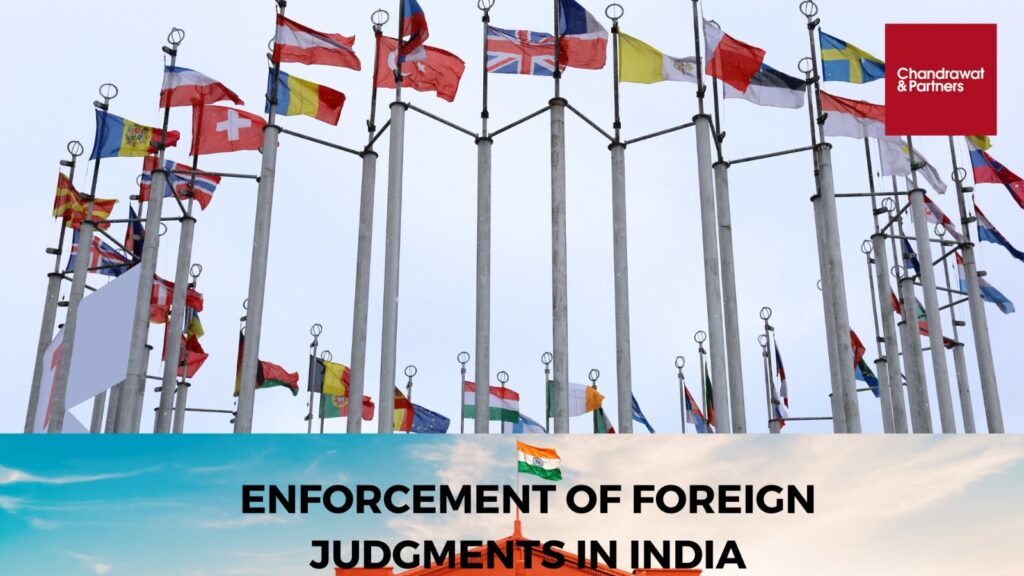The growth of international commerce has necessitated the creation of efficient methods of resolution of disputes. In some situations, securing an award or a final judgment from the courts may only be a battle half won. Judgment from foreign countries may be recognized.
In India, based on bilateral, multilateral treaties, conventions or other International Instruments. The position of enforceability of foreign judgments in India is crystal clear. The Civil Procedure Code, 1908 (hereafter referred as ‘CPC’) deals with recognition and enforcement of foreign judgments and decrees in India under Section 44-A read with Section 13 of the CPC. A foreign judgment from any reciprocating territory can be directly enforced just like a domestic judgment. The provisions as laid down under Sections 13, 14, 44-A of the CPC, bring out an efficient mechanism to enforce foreign judgments.
Basis for recognition of a foreign judgment
Section 13 of CPC says that a foreign judgment shall be conclusive as to any matter thereby directly adjudicated upon between the same parties or between parties under whom they or any of them claim litigating under the same title except in following cases—
- Where it has not been pronounced by a Court of competent jurisdiction;
- Where it has not been given on the merits of the case;
- Where it appears on the face of the proceedings to be founded on an incorrect view of international law or a refusal to recognize the law of India in cases in which such law is applicable;
- Where the proceedings in which the judgment was obtained are opposed to natural justice;
- Where it has been obtained by fraud;
- Where it sustains a claim founded on a breach of any law in force in India.
Presumption as to foreign judgments in the Code
Section 14 of CPC – The Court shall presume, upon the production of any document purporting to be a certified copy of a foreign judgment, that such judgment was pronounced by a Court to competent jurisdiction, unless the contrary appears on the record; but such presumption may be displaced by proving want of jurisdiction.
Enforcement of Foreign Judgments
In India, a judgment or decree from a foreign court, which is conclusive under section 13 of CPC and does not fall within its clauses (a to f), can be enforced in either of the following ways:
For judgments from reciprocating countries by instituting execution proceedings
Under section 44-A of the CPC, a decree or judgment of any of the Superior Courts of any reciprocating territory are executable as a decree or judgment passed by the domestic Court. The judgment will be then executed in accordance with section 51 of the CPC for enforcement of a decree.
For judgments from non-reciprocating countries by instituting a suit on such foreign judgment
A suit must be filed in a court of competent jurisdiction in India for enforcement of a foreign judgment or decree which is passed by a superior court of a reciprocating territory. As per the general principles of law, any decision of a foreign court, tribunal or any other quasi-judicial authority is not enforceable in a country unless such decision is embodied in a decree of a court of such foreign country. The court will not go into the merits of the original claim and it shall be conclusive as to any matter thereby directly adjudicated between the same parties. Here, the foreign decree is considered as evidence.
Limitation
Three years in case of judgment passed from a non-reciprocating territory from the date of judgment file a new suit in an Indian court.
The limitation period for executing a decree passed by a foreign court from a reciprocating country in India, is the limitation prescribed in the reciprocating foreign country. The Supreme Court in Bank of Baroda v Kotak Mahindra Bank Limited (Civil Appeal No. 2175 of 2020) has held that the right to file execution proceedings in India would accrue “only after finalization of execution proceedings in the Cause Country”.
For more information or queries, please email us at
[email protected]






